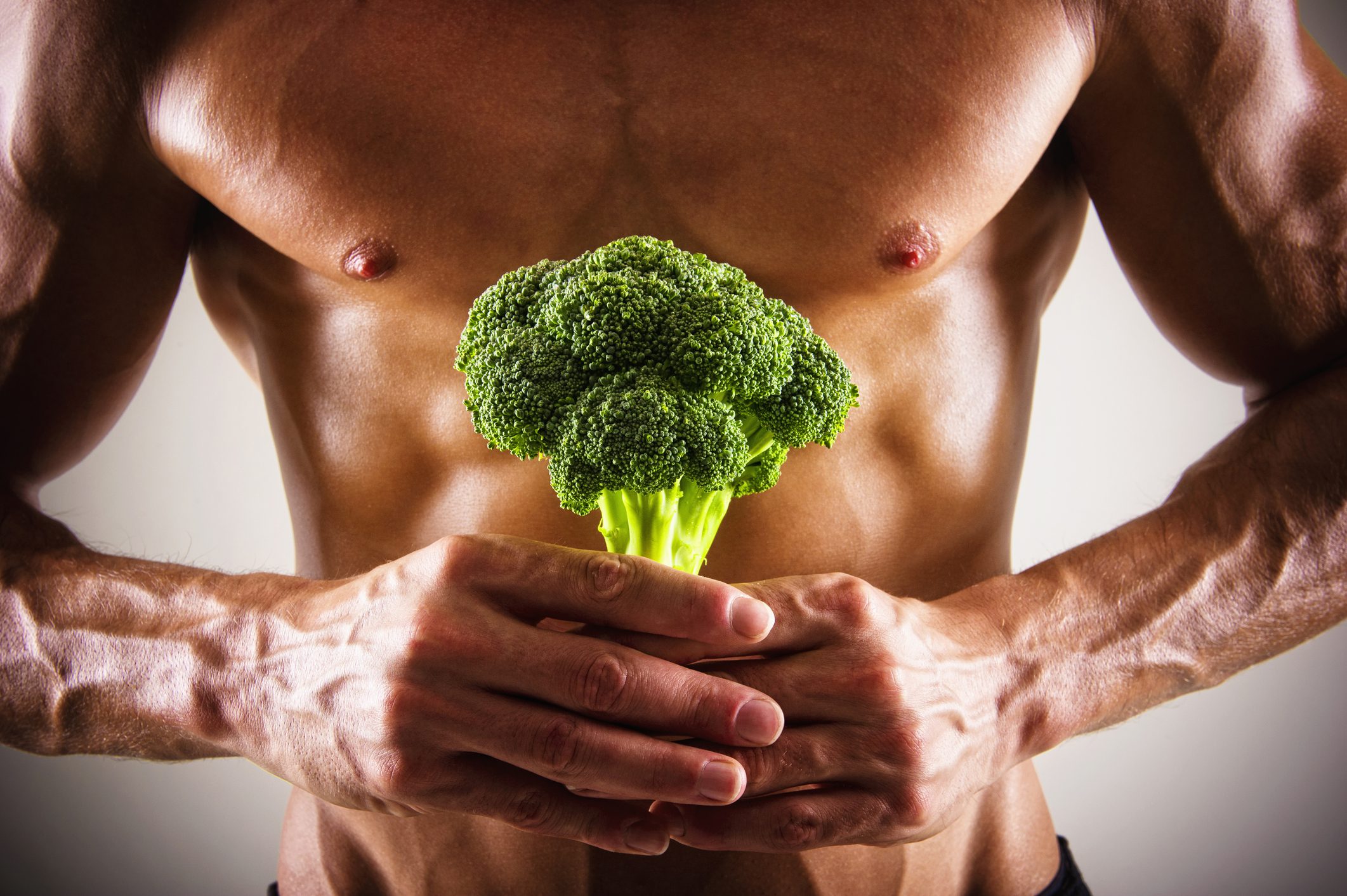
New Netflix documentary What the Health has been encouraging men and women everywhere to turn vegan. But one of the biggest barriers to fitness fans who might otherwise make the change remains bulking up.
Can a vegan diet really supply enough protein to encourage growth?
And even if it could, would you want to?
RELATED: What happens when I eat too much protein?
At the MH office, very few of us will turn down a really good rare steak. But it’s becoming increasing common to see fitness fans shy away from traditional forms of protein, whether they’re environmentally conscious or just worried about their heart health.
Is there really a case for animal abstinence?
Why go vegan?
Even if you look at your shoe when someone mentions ‘carbon footprint’, vegan diets have plenty of health credentials. The journal Nutrients took a comprehensive look at vegetarian, vegan, pescetarian and omnivorous diets, and came to the conclusion vegan was the overall healthiest. However, it was acknowledged that vegans would have to take certain supplements to make up for deficiencies – such as a lack of calcium – that they can’t get from whole vegan foods.
This is the double-edged sword of the vegan lifestyle. Alternative products and supps quickly get expensive when bought in large quantities, and joining friends for dinner can quickly become a chore instead of a pleasure.
So, how easy is it to pack protein into a diet that, from the outside, looks pretty damn cruciferous? We asked nutritionist Bethan Hamilton, for her expert tips on getting gainsy while going vegan.
RELATED: The amount of protein that will max out your gains
Making up the difference
“Many people worry that they can’t get all of their protein needs from a plant-based diet,” says Hamilton. “However, grains, nuts, seeds and beans are the main foods to include.”
While there is plenty of protein in whole plant foods for vegans to consume and maintain muscle, actually bulking up proves tricky. It also means cheat days are tougher, as there’s no real vices to indulge in.
So why is bulking up so hard?
The answer lies in the amount of protein in plants vs meat. 100g of kidney beans contain around 8.5g of protein, compared to 29g of protein in 100g of fillet steak. You’ve either got to consume much, much more food in total, or rely on supplements. Some vegan proteins are just as effective as dairy proteins like whey and casein, but not all.
“Whey and casein are complete proteins. This means they contain all the essential amino acids – the building blocks of protein – that our bodies must get through food,” says Hamilton. “If you are using a vegan protein powder, it is important to check that it contains multiple sources of plant-based proteins in its blend, to provide you with all these essential amino acids.”
The good news is that regardless of where you get your protein from, it behaves in the same way. Whatever your source; protein is protein, and you’ll still be able to build muscle as a vegan.
How do you start switching over to a vegan diet while training?
“Start with little changes and get experimental with new foods. For example, switch it up with lentils in your weekly spaghetti bolognese or use beans in your curries and burger patties,” says Hamilton.
Make sure you’re getting adequate supplements, and adjust your diet accordingly. If you’re feeling tired, eat more carbs and try a vitamin B12 supplement. So common in red meat, the energising micronutrient is sadly lacking in most vegan whole foods.
Likewise with complete proteins, if you’re doing regular resistance training a good powder is essential.
If you’re ethically committed to veganism, the good news is that bulking without the beef is an achievable goal and the overall health benefits are likely to reward you in the long run. However, if you’re finding giving up meat too tough or the vegan lifestyle too challenging, there’s no shame in good old functional flexitarianism.
This article originally appeared on Menshealth.co.uk













